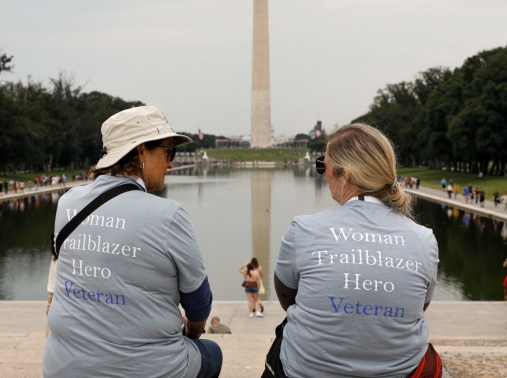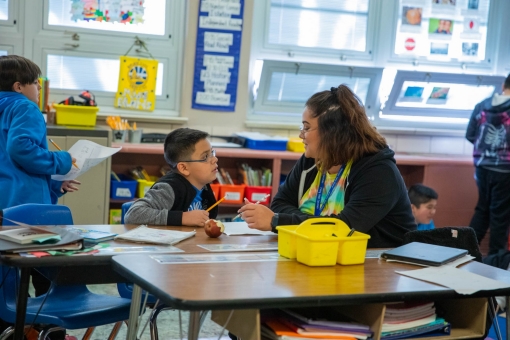|
|
RAND research and commentary on the issues that matter most
|
Sept 15, 2022
|
|
|
|
|
Photo by Lauren Russell/U.S. Air Force
|
|
|
|
The Supreme Court's decision to overturn Roe v. Wade may have serious implications for the U.S. Department of Defense. After all, women make up about 17 percent of the active-duty military population. Their health is critical to force readiness and the well-being of U.S. troops.
In a new paper, RAND researchers estimate that between 5,000 and 7,400 active-duty service women and Pentagon-employed civilian women who seek abortion care in a given year could now face added challenges in obtaining these services. And for DoD, the potential effects include increased attrition; more duty-restricted and non-deployability scenarios; and higher health care, childcare, and education costs.
Ultimately, the authors argue, Dobbs could lead to a decrease in force readiness and U.S. national security.
To help ensure that service women and DoD civilian women have access to the full scope of care, DoD could improve education about available reproductive health care services, provide more contraceptive counseling, and expand civilian employees' access to services at military treatment facilities. Read more »
|

|
|
Two Honor Flight Kentucky Veterans at the Lincoln Memorial Reflecting Pool, June 11, 2022. Photo by Sgt. Jesse Elbouab/U.S. Army
|
|
While the total number of U.S. veterans is projected to decrease over the next decade, the number of veteran women is expected to increase. Veteran women differ from their male counterparts and from nonveteran women—and so do their needs. For example, they face barriers to gender-specific health care, increased pressure to balance work and caregiving, and higher rates of PTSD, depression, and other mental health conditions. A new RAND paper outlines opportunities to address these challenges.
Read more »
|
|

|
|
People wearing masks walk down the street in Shanghai, China, December 16, 2021. Photo by Aly Song/Reuters
|
|
It's unclear what the post-pandemic world will look like. That's why it's important to think about the lasting effects on the economy, politics, and social psychology, says RAND's Brian Michael Jenkins. In a new book, Jenkins draws on history to consider the long-term devastation of pandemics. These crises “are not slain like mythical dragons,” he writes. “They retreat, perhaps only temporarily, leaving behind a trail of death and destruction and an anxious population.”
Read more »
|
|

|
|
Medical staff conducts COVID-19 tests at a clinic in Gwangju, near Seoul, South Korea, March 2, 2020. Photo by Yonhap News Agency via Latin America News Agency/Reuters
|
|
Will the world be better prepared to respond to the next global health crisis? If nations model their plans after those of South Korea, then the answer may be more likely to be yes. That’s according to RAND’s Jennifer Bouey, an internationally recognized epidemiologist, and the lead author of a new report that outlines the key features of Seoul's “near-perfect response” to COVID-19. For example, South Korea developed an early alert system and a centralized response system; it used information sharing and communications technology; and it benefited from a large public health workforce.
Read more »
|
|

|
|
Rosneft Oil Company CEO Igor Sechin's yacht, Amore Vero, which was seized by French authorities, in La Ciotat Harbour, March 4, 2022. Photo by Florian Escoffier/ABACA/Reuters
|
|
Western sanctions are ensnaring more and more Russian business leaders, some of whom say they are unjustly targeted. According to RAND's William Courtney, there are three primary ways that they might reduce their risk of being sanctioned: Criticize the war in Ukraine, blame the Kremlin for the conflict, and assist Ukraine and its people. Russian entrepreneurs may fear the Kremlin’s power. But they may also realize that Putin's war threatens their success. “The choice is theirs to make,” Courtney says.
Read more »
|
|

|
|
Photo courtesy of Cowell Elementary School, Denver, CO
|
|
Evidence suggests that social and emotional learning contributes to better life outcomes by helping kids understand and manage their emotions, feel and show empathy, and build positive relationships. A new RAND report examines six case studies that spotlight how social and emotional learning is implemented in out-of-school-time programs. The findings may help school and district leaders install such programs in their own schools.
Read more »
|
|
|
Why is RAND CEO Jason Matheny optimistic about the future? How are educators faring in the COVID era? What can communities do to prevent mass shootings?
|
|
|
|
|